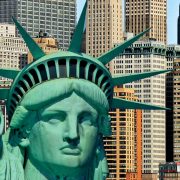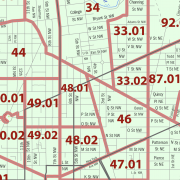Throughout 2020, the COVID-19 pandemic spread across the world, resulting in massive disruptions to business operations, global economies, and people’s daily lives. Just like every other industry, the EB-5 industry faced many changes due to the pandemic, leaving many involved with the EB-5 Immigrant Investor Program questioning how their EB-5 journey would be affected.
As of January 2021, the full effects of the COVID-19 outbreak are still unknown. The distribution of COVID-19 vaccines has finally begun, which offers a glimmer of hope that the world may slowly begin returning to normal. However, the speed of the return to normalcy is largely dependent on the effectiveness of the vaccines. Those involved with EB-5 investments should continue to expect more changes and obstacles as immigration agencies struggle to navigate the pandemic. Luckily for many EB-5 investors, United States Citizenship and Immigration Services (USCIS) has implemented special accommodations for investors affected by the COVID-19 pandemic.
Deadline Extensions for Multiple Notices
The pandemic has led to multiple shutdowns all over the world. In fact, for most of 2020, all U.S. embassies and consulates were temporarily shut down, leaving thousands of EB-5 applicants unable to complete their visa applications and receive their U.S. green cards. Because it is still unknown when the world will return to normal, it is entirely possible that there could be more shutdowns going forward.
Because these various shutdowns restrict EB-5 investors’ access to much needed resources, USCIS is offering deadline extensions for requests for evidence (RFE), notices of intent to deny (NOID), and other notices investors may receive. All EB5 investment participants who receive an RFE or NOID between March 1, 2020, and January 31, 2021, will have an extra 60 days to gather the necessary documentation and respond to the notice. So, investors should be aware that they have an extra 60 days after the due date indicated on their notice.
Case-By-Case Considerations
USCIS has also acknowledged that there are many problems resulting from the COVID-19 pandemic that may complicate an EB5 investment through no fault of the investor. The agency will evaluate circumstances on a case-by-case basis to potentially provide exceptions.
For example, a foreign national residing in the United States and engaged in an EB-5 investment may be unable to extend or change their immigration status during the pandemic. USCIS could evaluate whether the circumstances justify the failure to meet the specific requirement. USCIS has also stated that it may also excuse delays in changing immigration status if they are due to similar special circumstances.
Missed Interviews or Biometrics Appointments
Another major obstacle that the COVID-19 pandemic presented in 2020 was the inability to schedule a visa interview or biometrics appointment. USCIS has also been compassionate enough to take this into account and offer accommodations for EB-5 investors who have missed appointments.
It is especially difficult to attend an appointment if an investor is ill. Any investor who tests positive for COVID-19 or shows symptoms similar to COVID-19 will be denied entry into USCIS facilities. Because of this, USCIS has stated that it will not penalize any investors who reschedule an appointment due to illness.







